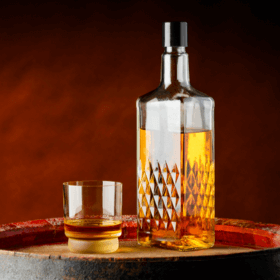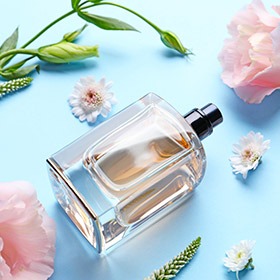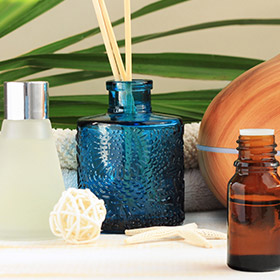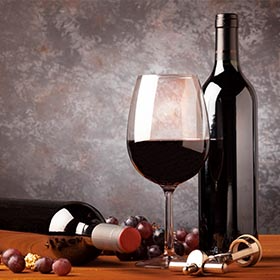Introduction
For rum brands, distilleries, and distributors, ensuring product quality from bottling to shelf is non-negotiable. One frequently asked question in the spirits industry is: Does rum expire in a glass bottle? While rum is known for its long shelf life, both rum bottle sizes and packaging materials, especially glass rum bottles, play vital roles in preserving its flavor, aroma, and value.
This article explores the shelf stability of rum, the chemistry behind its preservation, and why glass alcohol bottles are the gold standard for long-term storage. Whether you’re in the business of sourcing 750ml alcohol bottle, customizing fancy liquor bottles, or distributing liqueur bottles worldwide, understanding how packaging impacts shelf life is crucial for protecting your brand.
Understanding Rum Composition and Shelf Stability
What Is Rum and What Is Rum Made Of?
Rum is a distilled alcoholic beverage made from fermented sugarcane juice or molasses. It’s aged in barrels and then bottled at various strengths. Depending on aging and ingredients, rum is categorized as white, dark, spiced, or flavored.
Main components of rum include:
Ethanol (Alcohol): Typically 35–60% ABV, acts as a natural preservative.
Congeners: Substances developed during fermentation and aging that affect flavor and aroma.
Sugars: Especially in spiced or flavored rums.
Water: Used to dilute the alcohol content during bottling.
Flavor Additives: Spices, fruit essences, or caramel coloring.
These ingredients determine rum’s chemical stability. While high alcohol content protects it from microbial spoilage, oxidation and light can still alter its sensory profile over time—especially in inferior packaging.
How Alcohol Content Affects Shelf Life
Alcohol’s preservative properties allow unopened rum to last indefinitely. The higher the ABV, the more resistant the liquid is to microbial spoilage and oxidation. For instance, a 40% ABV white rum in a sealed bottle is unlikely to experience chemical degradation for decades.
A study from the National Institutes of Health confirms ethanol’s stability when stored in sealed containers, highlighting the role alcohol plays in preserving spirits like rum over long periods.
The Role of Glass Bottles in Preserving Rum
Shelf Life of Unopened Rum
Unopened bottles of rum, particularly those packaged in 750ml alcohol bottles or 1 liter alcohol bottles, do not spoil under normal conditions. Glass bottles are impermeable to air and moisture, and if properly sealed, preserve the original flavor and color of rum indefinitely. Industry Data: A 2020 IWSR report noted that premium rums stored in quality spirit bottles maintained >95% sensory integrity over 15 years.
Brands investing in custom liquor bottle designs or fancy liquor bottles not only benefit from aesthetic appeal but also ensure chemical stability. This is why glass packaging continues to dominate premium and mid-tier liquor segments.
Key Factors That Affect Shelf Life
Even though rum is a shelf-stable spirit, its long-term quality can be compromised by certain environmental and packaging-related factors. Selecting the right rum glass bottle plays a crucial role in preserving flavor, aroma, and visual appeal. Below are the key considerations for optimal rum preservation:
1. Seal Type and Integrity
A tight seal is essential to prevent oxygen ingress. Whether using a quality cork or a screw cap, the closure must maintain its integrity over time. Once compromised, oxidation accelerates, leading to flavor degradation and potential evaporation. For long-term storage, screw caps often provide more consistent sealing, while corks require controlled humidity to remain effective.
2. Light Exposure
UV rays initiate chemical reactions in ethanol and volatile compounds, especially in clear or lightly colored bottles. This leads to off-flavors and discoloration. Dark-colored glass or UV-coated white rum bottles are recommended to minimize light penetration and maintain the rum’s sensory profile.
3. Temperature Stability
Fluctuating or extreme temperatures cause expansion and contraction of the liquid, stressing the closure and allowing air ingress. Prolonged heat also breaks down esters and accelerates oxidation. Ideal storage temperatures range between 13–18°C (55–65°F) for maximum shelf life.
4. Humidity and Airflow
For cork-sealed bottles, maintaining relative humidity between 50–70% is vital. Excessively dry environments can dry out corks, causing leakage or oxidation. On the other hand, overly humid conditions may lead to mold development around the seal if not properly stored.
5. Bottle Material and Design
Glass remains the preferred packaging material for premium rum due to its chemical inertness, strong oxygen barrier, and aesthetic versatility. Compared to PET, aluminum, or Tetra Pak, glass offers better protection against both physical and chemical degradation. Additionally, thicker or coated glass provides enhanced insulation against light and temperature fluctuations.
What Happens to Rum After Opening the Bottle?
Oxidation and Flavor Loss
Once opened, oxygen interacts with rum’s volatile compounds. Over time:
Esters and congeners oxidize, dulling aroma.
Sweet or spice notes may fade.
Overall balance becomes muted.
This is especially critical for brands using custom liquor bottle designs for limited-edition releases, where flavor preservation is tied directly to premium pricing.
Pro Tip: Encourage consumers and retailers to consume rum within 6–18 months of opening for optimal flavor.
Signs That Rum Quality Has Decreased
Here’s what to look for in aged, opened glass alcohol bottles:
Loss of aroma
Discoloration (yellowing or cloudiness)
Weak or flat flavor
Unpleasant or papery aftertaste
Increased headspace in the bottle
Although these symptoms don’t indicate that the rum is unsafe, they signal the loss of intended quality—a critical concern for luxury or aged rum producers.

How Glass Bottles Preserve Rum Better Than Other Packaging
Benefits of Glass for Long-Term Storage
Glass is a superior packaging material for spirits. Unlike plastics or metals, glass liquor bottles do not react chemically with alcohol. They’re non-toxic, airtight, and recyclable. As a result, they maintain the organoleptic properties of rum far better than alternative packaging.
According to a 2023 market study by Grand View Research, over 75% of premium spirits are packaged in glass due to its inert nature and brand perception benefits.
Types of Glass Bottles Ideal for Rum
Different rum variants may benefit from different packaging aesthetics:
Clear bottles: Ideal for white or silver rum
Amber bottles: Better for dark and spiced rums
Square liquor bottles or round liquor bottles: Used to differentiate brands visually
Custom glass bottles for liquor: Enable premium market positioning. Whether for alchol bottles sold in supermarkets or liqueur bottles displayed in high-end bars, design matters.
Rum Bottle Sizes
To meet diverse market needs, rum is packaged in various volumes:
Size | Use Case |
200 ml | Travel or sampling |
375 ml | Mid-size for retail |
500 ml | Boutique or artisanal brands |
750 ml | Global standard liquor size |
1 liter | Hospitality and export packaging |
Producers can also request special configurations like 750ml 750g rum glass bottle manufacturers for unique design and branding needs.


Roetell Glass: Your Partner in Premium Rum Packaging
With over 30 years of manufacturing expertise, Roetell Glass is a trusted name in custom glass bottle production for the global spirits industry. Based in Xuzhou, China, we serve as a full-service liquor, rum, and brandy glass bottle factory, offering tailored packaging solutions for distilleries, wholesalers, and private-label brands worldwide.
Why Leading Spirit Brands Choose Roetell Glass:
Extensive Product Range From gin, vodka, and rum bottles to wine and brandy glass packaging, we cater to both mass-market and niche requirements.
Customization Expertise Enhance your brand identity with silk screen printing, frosting, hot stamping, labeling, and embossing—all tailored to your unique design needs.
Certifications You Can Trust Our products meet global safety and quality standards, including FDA, SGS, and ISO certifications.
Flexible MOQs Whether you’re a large-scale importer or a boutique distillery, we offer adaptable order quantities to suit every business model.
Global Supply Network We proudly serve clients across North America, Europe, and Southeast Asia, delivering consistent quality and reliable logistics support.
From stylish alcohol bottles to custom-designed liquor packaging, Roetell Glass delivers both functional performance and brand-defining aesthetics. Whether you’re sourcing bulk spirit bottles or developing a fully custom mold, our team is ready to help bring your vision to life.
Tips for Storing Rum in Glass Bottles (For Brands & Consumers)
Whether for opened or unopened rum, proper storage is essential to preserve flavor, aroma, and brand value over time. Both environmental conditions and packaging design play a critical role in maintaining product integrity. Below are the best practices based on industry standards and storage stability testing.
General Guidelines for Storage
Temperature Stability:
Maintain a consistent storage temperature between 13–18°C (55–65°F). Excessive heat accelerates oxidation, while extreme cold may compromise seals and cause content expansion.
Humidity Control:
For cork-sealed bottles, keep relative humidity between 50% and 70% to prevent corks from drying out and allowing oxygen ingress.
Light Exposure:
Avoid direct sunlight and harsh artificial lighting. UV rays degrade ethanol and flavor compounds. Use dark-colored or UV-coated glass bottles—especially for white rum variants—to minimize photodegradation.
Seal Positioning:
Always store bottles upright. This helps maintain the integrity of corks and screw caps and prevents potential contamination from closures. Studies show that rum stored upright in sealed glass bottles at consistent temperatures retains 95% of its original flavor after 24 months, even once opened.
For Retailers and Distributors
Proper handling at the distribution and retail level is just as important as bottling. These strategies can extend shelf life by 20%–30% and reduce product returns:
Display Strategy:
Use shaded or backlit displays for clear and white rum bottles to avoid prolonged light exposure.
Seal and Packaging:
Opt for tamper-evident, airtight closures. Consider branding caps for added consumer trust.
Warehouse Practices:
Avoid placing inventory near heat sources like skylights or HVAC exhausts. Maintain controlled climate storage whenever possible.
Inventory Rotation:
Implement FIFO (First-In, First-Out) inventory management to minimize over-aging and preserve product freshness.
Consumer Education:
Include storage guidelines and optional “best-before” indicators on the packaging—even though rum does not technically expire—to enhance consumer experience and protect your brand image.
Conclusion
So, does rum expire in a glass bottle? The short answer is no, but its quality can degrade if mishandled—especially after opening. Using high-quality glass bottle for liquor is essential to preserving aroma, taste, and shelf appeal.
Glass remains unmatched as the ideal packaging for alcohol, offering barrier protection, brand prestige, and a long shelf life. Whether you’re looking for custom glass bottles for liquor, cool alcohol bottles, or bulk supply of liquor bottles for sale, the material you choose directly impacts the longevity and perception of your product.
Roetell Glass is here to help your brand stand out and stay preserved—from classic 750ml glass liquor bottles wholesale to boutique spirit bottle shapes. As leading rum glass bottle manufacturers, we’re ready to bring your vision to life with technical excellence and market expertise.









